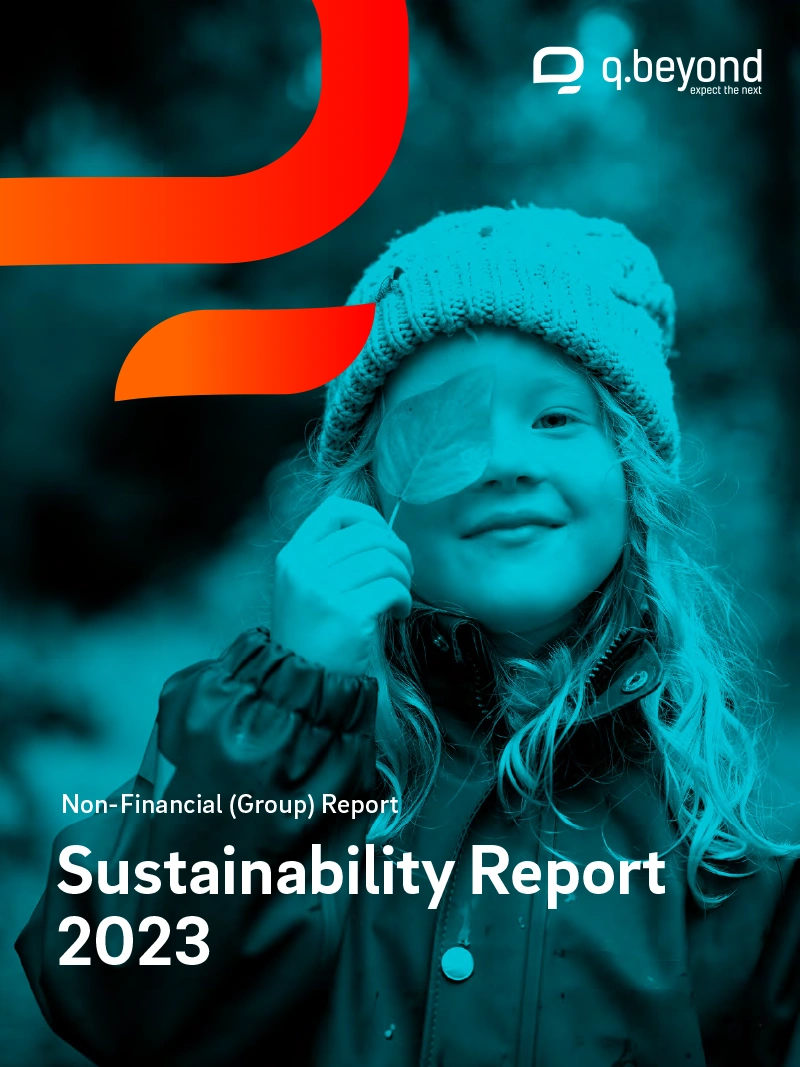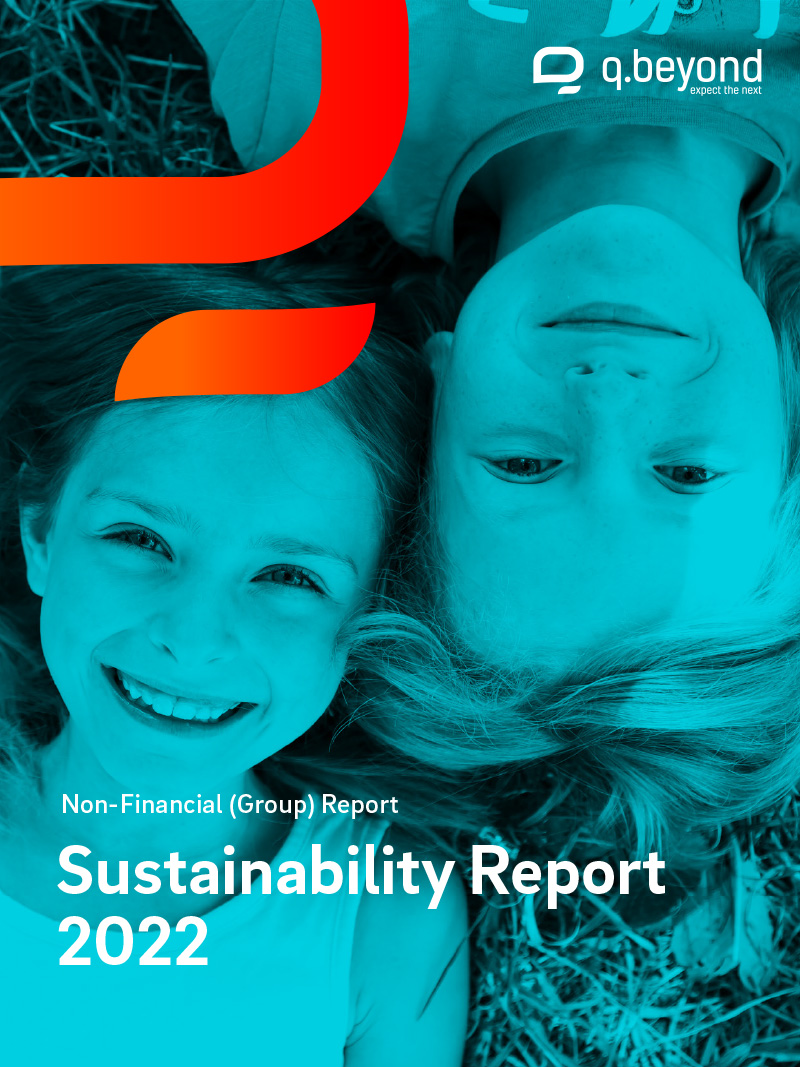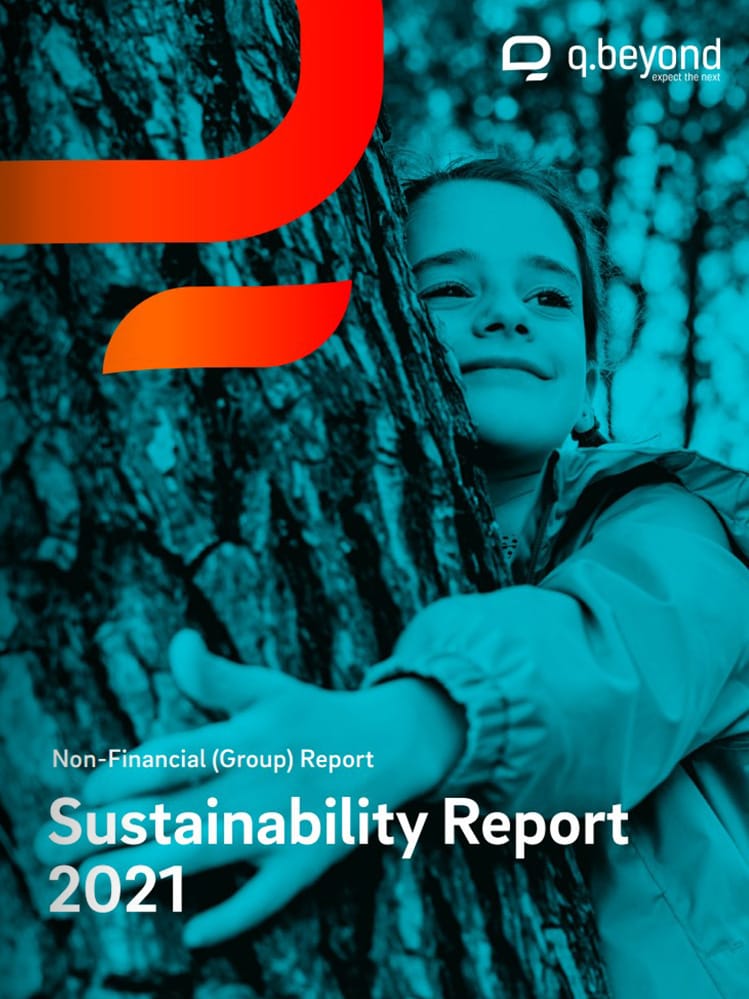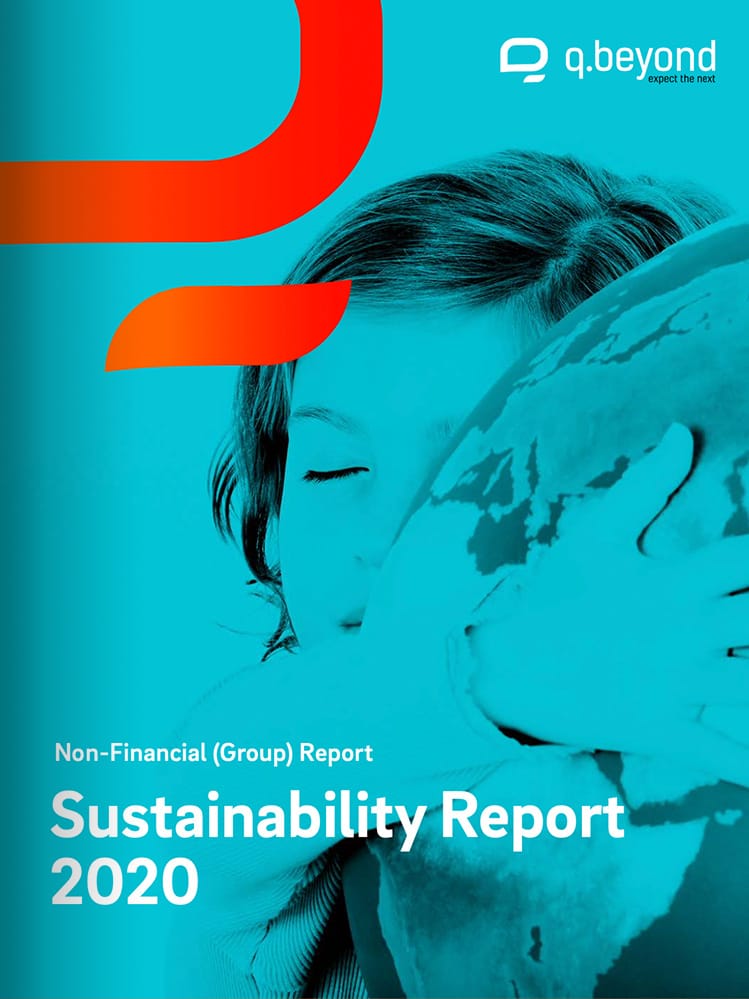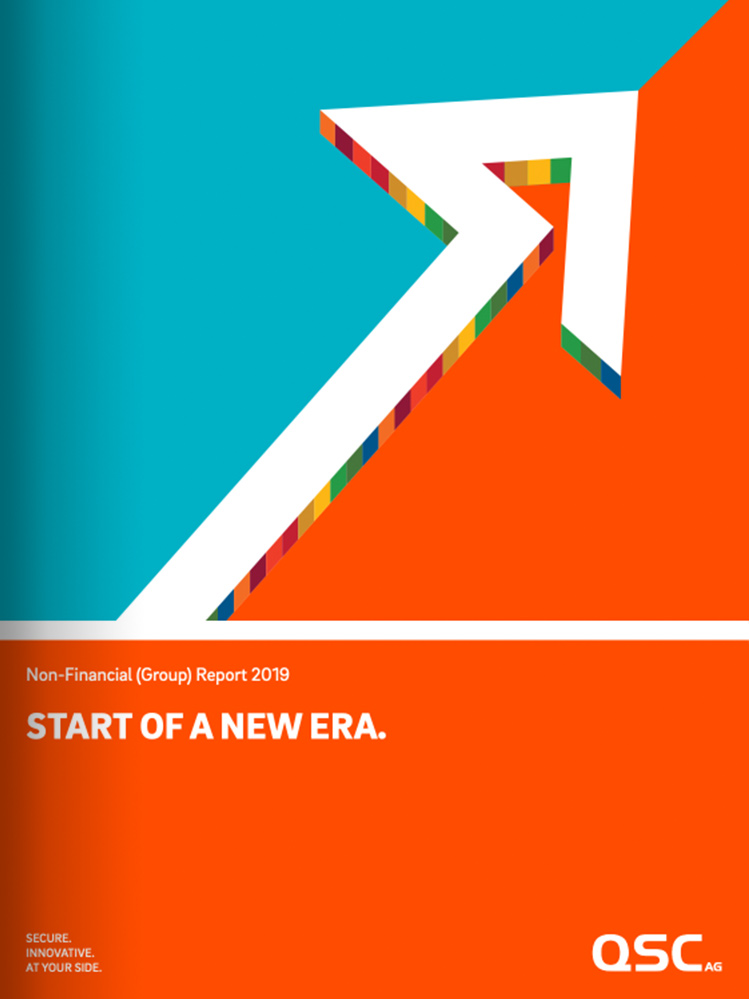
We make every effort to optimise our utilisation of natural resources, manage their use as efficiently as possible and limit our climate-relevant emissions.
Based on our 2019 CO2 balance sheet, we aim to reduce our emissions from electricity, fuels and business travel by a total of at least 40%, offset the remaining emissions and also offset all material emissions sources along the value chain through to delivery to the customer. By the end of 2026, we aim to reduce our emissions from electricity, fuels and business travel by at least 60% overall compared with 2019.
We monitor target achievement based on CO2 accounting consistent with the Greenhouse Gas Protocol.
For our customers, this means that q.beyond’s Cloud, SAP and software solutions are a good way to advance their own commitment to climate protection. Today, all electricity we use at our data centres already comes from regenerative energy sources.

„Climate change is without doubt the key ecological challenge of our time. q.beyond has therefore set itself a clear target: We want to reduce 60% of our CO₂ emissions from electricity, fuels and business trips by 2027.“
Thies Rixen, CEO of q.beyondClimate balance sheet in line with the Greenhouse Gas Protocol
In our Sustainability Report 2023, we provide you with detailed information about our ecological footprint.
E-mobility reduces vehicle pool emissions
Direct GHG emissions (Scope 1) chiefly arise in connection with heating energy needed at office buildings and with work-related mobility via the vehicle pool. They are also attributable, if to a far lesser extent, to monthly test runs with the emergency power generators used to supply our data centres, as well as to coolants used at the data centres. To reduce GHG emissions, the company plans to gradually convert its vehicle pool to e-mobility by 2025.
Limiting electricity-related emissions from data centre operations
Indirect GHG emissions (Scope 2) primarily result from the electricity used by our data centres. Around 95% of our total electricity needs relate to server operations and to cooling our data centres. We therefore focus on ensuring efficient energy management at these data centres and continually enhancing their energy efficiency. Since 2018, the electricity supplying our data centres has been procured exclusively from regenerative sources. We also converted the rest of our electricity supply to green electricity at almost all our office locations and we offset infrastructure-related emissions for green electricity (Scope 3) by participating in a certified climate protection project meeting the Gold Standard.
Modern communication systems limit emissions
Indirect GHG emissions (Scope 3) result from, among other sources, the upstream processes involved in producing the energy-based resources we deploy. Work-related mobility plays a key role in this respect. We are endeavouring to limit this by deploying modern communication media. The measures we are taking include video conference systems and generous home office provisions. Company bicycles, job tickets and car sharing offers also make it easier for employees to avoid using their own cars.
Offsetting CO2 is climate action – CO2OL TROPICAL MIX reforestation project in Panama
Our climate strategy aims first and foremost to avoid or minimise emissions. Despite all the measures implemented to reduce them, however, emissions cannot be eliminated entirely from our business operations. The second pillar of our climate strategy is therefore to offset CO2 emissions by purchasing high-quality CO2 certificates for climate protection projects. We offset the CO2 emissions of our main emitters. These involve unavoidable emissions for green electricity (Scope 3), coolants and heating oil for emergency electricity generators (Scope 1), emissions from fossil-based electricity (Scope 2) and emissions from fuel use and business travel (Scope 1 and Scope 3).
To offset these emissions, since the current 2022 financial year we have supported the CO₂OL TROPICAL MIX reforestation project in Panama. This combines active CO2 storage by way of reforestation with improvements to the economic and social situation on location. The reforestation and protection offered to numerous types of tree in the biodiversity hotspot help to safeguard the natural habitat for 15 endangered species of animal on the IUCN’s Red List, including brown-throated three-toed sloths and anteaters. Furthermore, the project provides long-term and fair employment to the local population and secures sustainable sources of income from the sale of certified tropical timber, cocoa and seeds. It is one of the first land use and forestry projects to be successfully certified under the prestigious Gold Standard for the Global Goals scheme. The forestry management in the project conforms to the guidelines of the FSC (Forest Stewardship Council), while the cocoa production is additionally certified under the UTZ and EU organic schemes.






